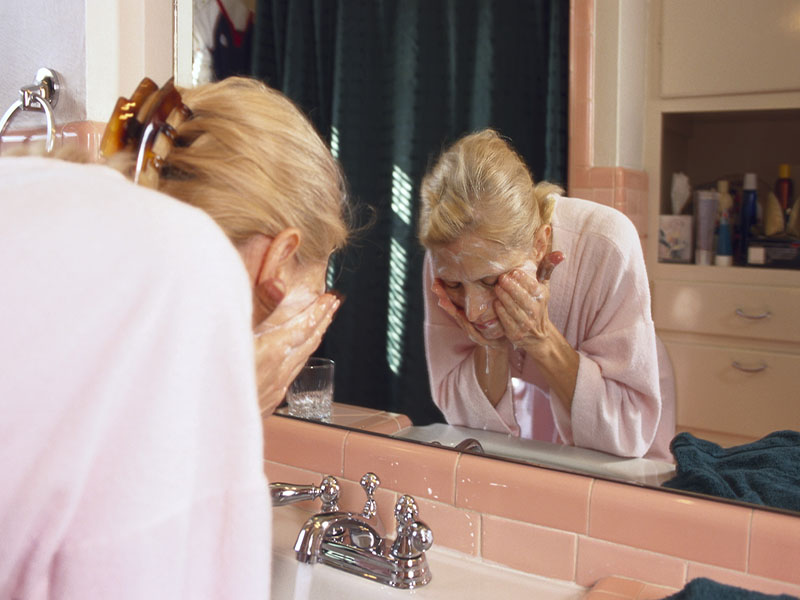
SUNDAY, Feb. 23, 2020 — People sometimes refer to menopause as “the change of life,” but many women are surprised that one of the things that changes is their skin, an expert says.
“Although fluctuating hormones during menopause can result in a number of skin changes, these don’t need to be disruptive to daily life,” said New York City dermatologist Dr. Diane Berson. “With the right care, women can continue to have healthy, blemish-free skin during midlife and beyond.”
During menopause, declining estrogen levels result in dryness and itching. Wash with a mild cleanser, as regular soap may be too drying, Berson suggested in an American Academy of Dermatology news release. After bathing or showering and throughout the day, apply a moisturizer with hyaluronic acid or glycerin.
To help soothe itchy skin, apply a cool, wet compress, then a moisturizer.
Another way to relieve itchy skin is to take a colloidal oatmeal bath. Colloidal oatmeal is available in most drug and beauty stores. Use warm, not hot, water and pat your skin dry — instead of rubbing — to avoid further irritation, Berson advised.
If fluctuating hormones leave you with acne, wash with a cleanser containing benzoyl peroxide. However, if the cleanser dries out your skin, switch to a milder cleanser or a product containing adapalene.
Age spots and larger areas of darker skin can appear on your face, hands, neck, arms or chest during menopause. Applying a broad-spectrum sunscreen with an SPF 30 or higher to exposed skin when you go outside can help fade age spots, prevent new ones and reduce your risk of skin cancer, Berson said.
Use other methods of sun protection, too, such as seeking shade and wearing a long-sleeved shirt, pants, a wide-brimmed hat and sunglasses.
“Remember, since skin cancer can sometimes look like an age spot, and since your risk of skin cancer increases with age, it’s important to perform regular skin self-exams during menopause,” Berson said.
More information
The U.S. Office on Women’s Health has more about menopause.
Source: Read Full Article
